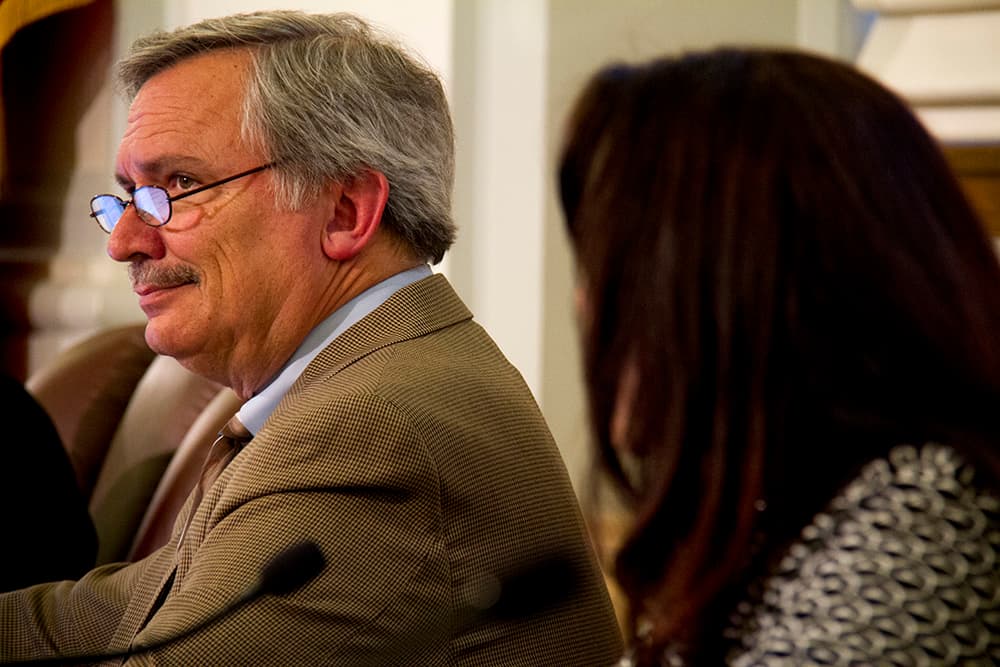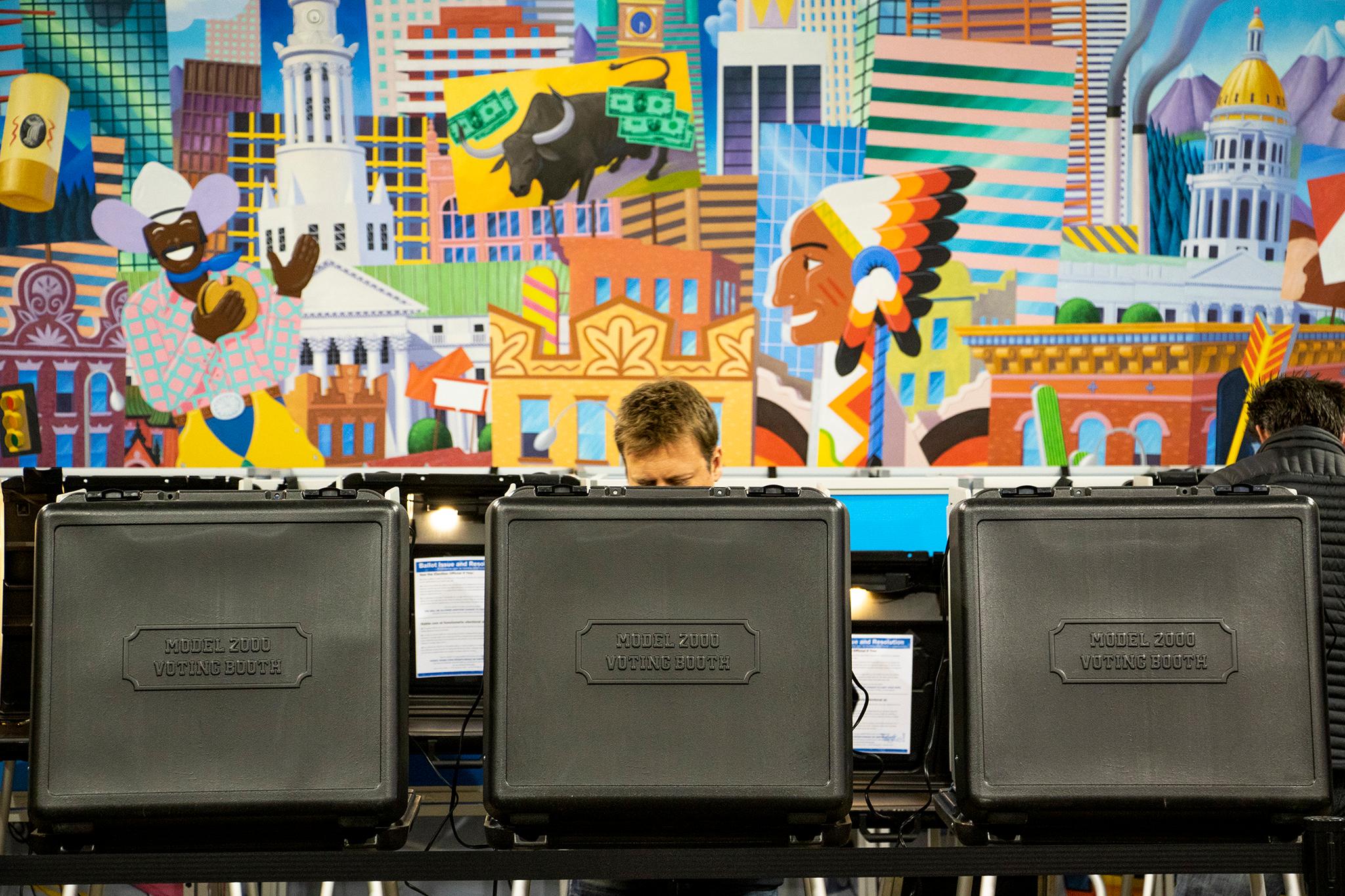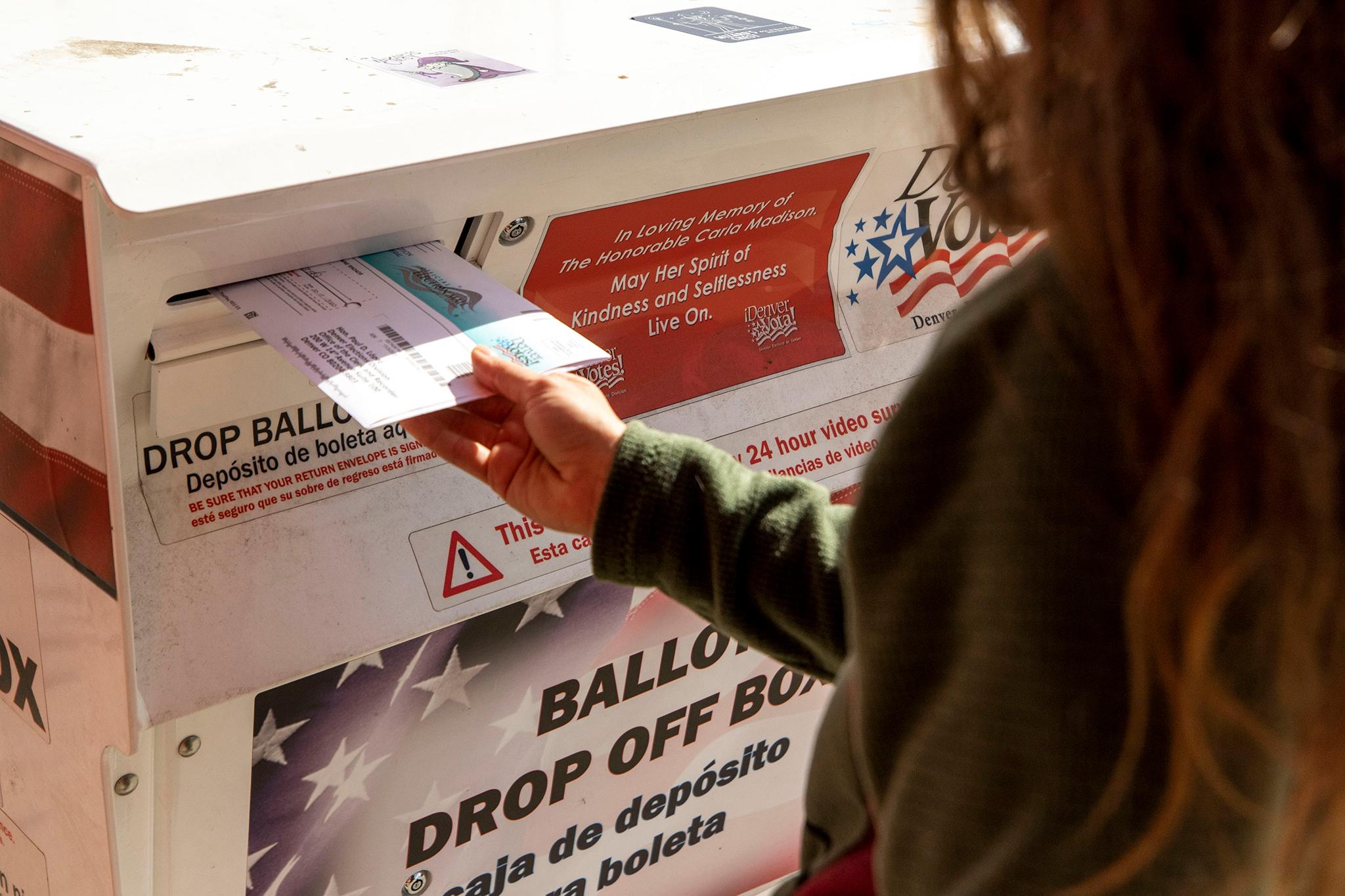It's a unique fixture in Denver. Every four years in May, the city holds its municipal elections to decide important roles like the mayor, city auditor and city council members. It's months apart from the traditional November election.
This odd configuration brings some challenges. Mainly: If a candidate for races doesn't get the majority of votes in the May election, a run-off election takes place in June. As it stands, if a run-off is necessary, city law says it has to take place roughly 30 days (roughly because it has to be held on the first Tuesday in June) after the municipal election. That can make things tricky for Denver Elections, which has a short window to prepare new ballots for military and overseas voters -- about 1 percent of all registered voters, or roughly 5,400 people.
Denver Clerk and Recorder Paul López -- whose seat is also decided during the municipal election -- formally issued two recommendations last week to help resolve these issues. One would be to move the municipal elections to April. The second would be for the city to adopt ranked-choice voting.
Ranked-choice voting would, at least on paper, basically speed up the process determined by the run-off. It would let voters pick multiple candidates in order of preference, that way when votes are tabulated, you can see who got the most top votes based on a voter's first choice, second choice, and so on. Doing this would eliminate the need for a run-off election because the top vote-getter would, in theory, be more quickly determined.
So how does the city implement this?
The only way to do this is for the City Council to forward a ballot measure to voters, who would basically get to vote on how they get to vote for future municipal elections. So the decision on whether to even consider this is now in the hands of the City Council.

Right now, this is only a recommendation, but coming from the city's top election official, it's a pretty formidable one.
"In all transparency, we analyzed the possibility of ranked-choice voting as a viable action, and it is," López said, though he declined to rank his choice. He said he wants to respect the authority of the legislative branch he used to be a part of, so he doesn't have a preference between his office's two recommendations.
"Either one is viable, and we are prepared to administer either election with excellence," he added.
Getting this done will present its own set of challenges if it ends up approved by voters. In his recommendation letter to Council President Stacie Gilmore, López said this method would need to consider added costs, voter education so people know how to use it, refining ballot processing, adjusting the post-election audit, and longer waits for an announcement of final results.
The clerk and recorder's office has started drafting amendments to the city's laws for both options. López wants City Council to put the options before voters for the November election. And if it does pass, it would only apply for the city's municipal elections, not for November elections. The next municipal election is scheduled to take place in May 2023.
And for the record: López noted it's possible both recommendations ending up being implemented, meaning Denver voters would get ranked-choice voting for municipal elections in April.
Whose idea was this exactly?
The recommendations came from a committee López convened last year.
The committee met eight times starting August 2020 and finishing up in February. They talked about potential changes to the city's election laws. The seven-member committee included local elected officials, academics, members of the public and Mayor Michael Hancock's chief of staff. The majority of the committee members supported moving the election from May to April instead of ranked-choice voting.

Councilmember Kevin Flynn, who was on the committee, opposes ranked-choice voting.
"Ranked-choice voting more often than not ... results in winners who do not achieve the majority of votes cast," Flynn said. "We do not need to change our system. We just need to change our calendar for the runoff."
Flynn's sticking point has to do with city law, which requires candidates to get a majority of votes cast in order to win (this doesn't apply to the two at-large council seats). Where Flynn sees a possible winner getting less than the majority of votes cast -- in terms of a voter's initial choice -- López said that in ranked-choice, a candidate would still need to get 50 percent plus one. In ranked-choice, you as a voter would get to pick multiple candidates, and candidates would be eliminated based on who got the fewest votes. That process would keep going until one candidate ends up with the majority of votes, which is based on where they were chosen in order by voters.
The public got to weigh in on all this as well. The committee got 358 public comments about voting methods.
What other places did the committee look at as potential models?
The committee looked at similar systems in cities like Santa Fe, New Mexico, Minneapolis and New York City. The latter just had its first municipal election with ranked-choice voting, as it was used for the primary for mayor. It was a race López noted in his letter to Gilmore that his office was watching closely.
For what it's worth, the Democratic primary in New York did hit a bit of snag after issues arose with tabulations involving extra ballots. That's since been mostly resolved, and one candidate was formally declared a winner by the Associated Press.

Locally, Basalt, Boulder, Carbondale and Telluride have implemented such voting.
Has Denver ever had ranked-choice voting?
Yes, but it was a very long time ago.
Voters approved moving to a ranked-choice system in 1913. It lasted until 1935, when voters effectively repealed the system, which had resulted in some contentious mayoral results, according to the Denver Public Library archives.












